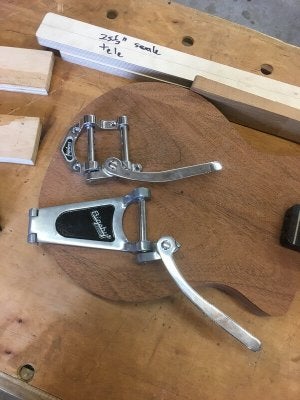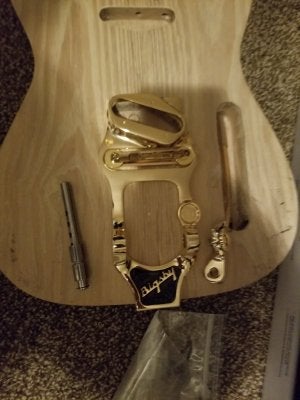old wrench
Poster Extraordinaire
Polished, unprotected, aluminum oxidizes pretty quickly all by itself. Through the "natural" process of oxidation it develops a thin outer layer of oxides. The outer layer of oxides serves to protect the underlying aluminum to some extent. Just raising the temperature of aluminum will accelerate the oxidation process.
I don't have a degree in chemistry or metallurgy, but I gained quite a bit of practical experience in the way aluminum oxidizes through my work with vintage motorcycles.
If you have a piece of aluminum (and it doesn't matter if it's a guitar bridge or a motorcycle engine or transmission case), and the piece stays bright and shiny without a weekly polishing, it's coated with "something" to keep it from oxidizing. It could be anodized, plated, clear-coated, etc.
So, . . . . if you want to get that natural "aged" look, which by the way, happens pretty quickly to uncoated or unprotected aluminum, just remove the coating .
.
Best Regards,
Geo.
I don't have a degree in chemistry or metallurgy, but I gained quite a bit of practical experience in the way aluminum oxidizes through my work with vintage motorcycles.
If you have a piece of aluminum (and it doesn't matter if it's a guitar bridge or a motorcycle engine or transmission case), and the piece stays bright and shiny without a weekly polishing, it's coated with "something" to keep it from oxidizing. It could be anodized, plated, clear-coated, etc.
So, . . . . if you want to get that natural "aged" look, which by the way, happens pretty quickly to uncoated or unprotected aluminum, just remove the coating
Best Regards,
Geo.




